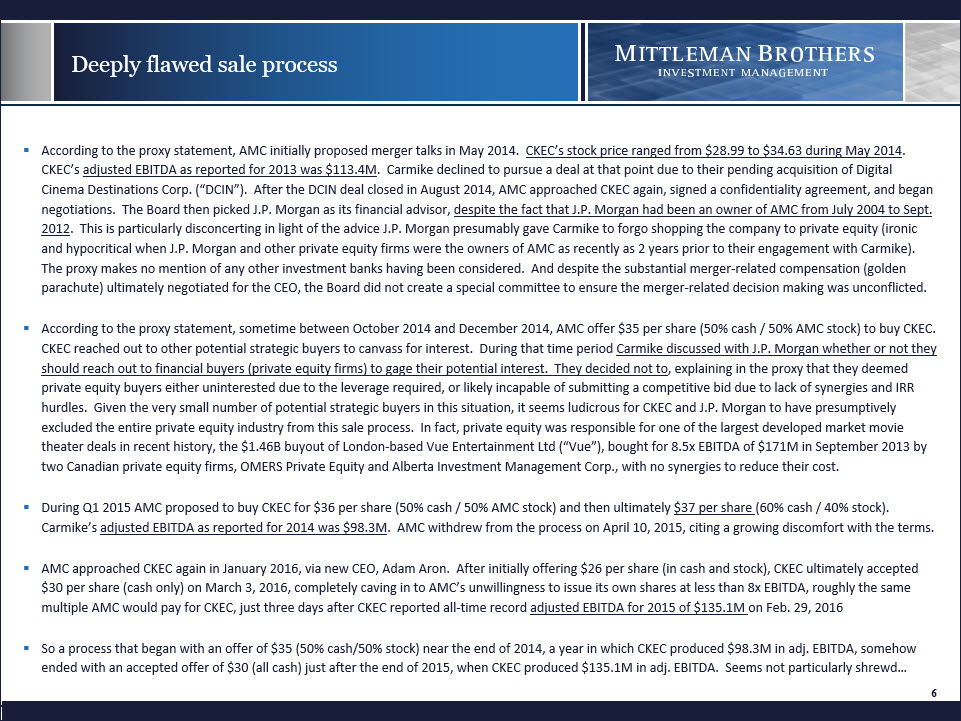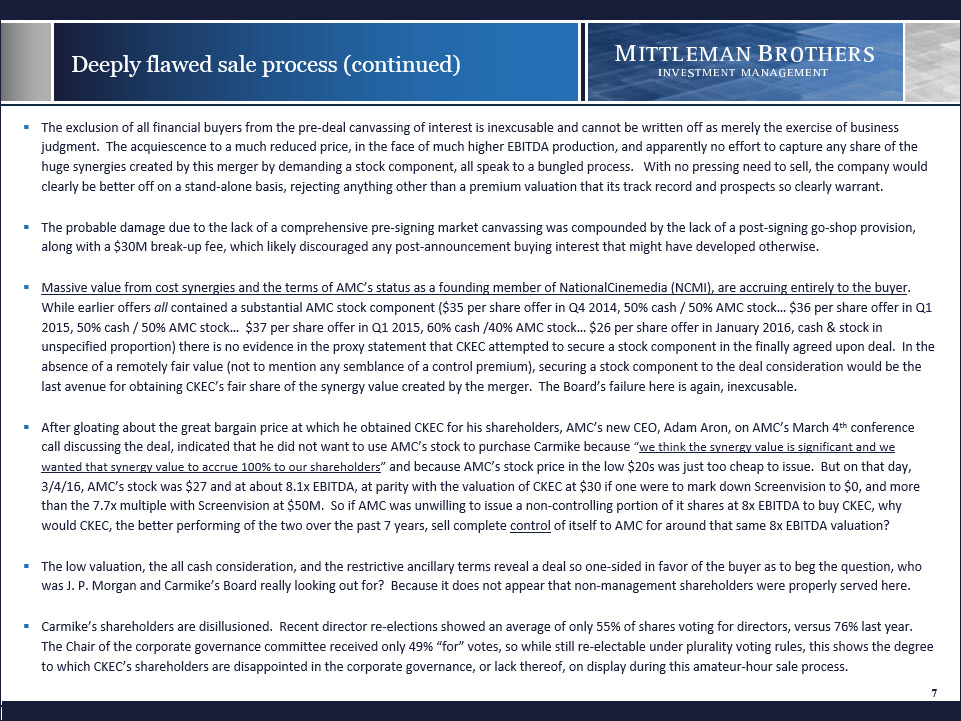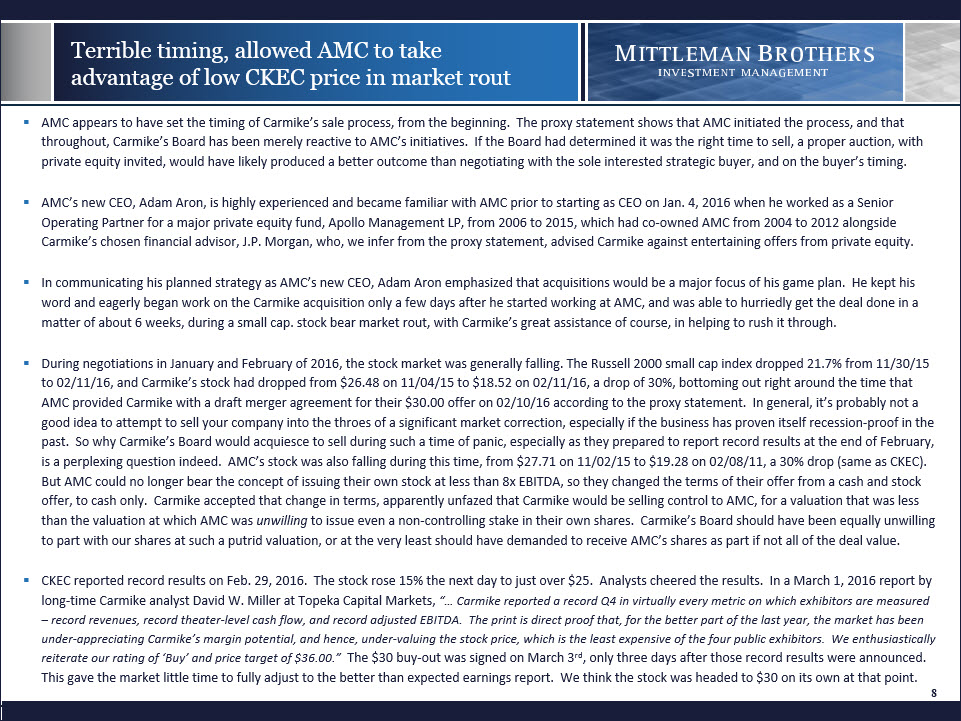Terrible timing, allowed AMC to take advantage of low CKEC price in market rout AMC appears to have set the timing of Carmike’s sale process, from the beginning. The proxy statement shows that AMC initiated the process, and that throughout, Carmike’s Board has been merely reactive to AMC’s initiatives. If the Board had determined it was the right time to sell, a proper auction, with private equity invited, would have likely produced a better outcome than negotiating with the sole interested strategic buyer, and on the buyer’s timing.AMC’s new CEO, Adam Aron, is highly experienced and became familiar with AMC prior to starting as CEO on Jan. 4, 2016 when he worked as a Senior Operating Partner for a major private equity fund, Apollo Management LP, from 2006 to 2015, which had co-owned AMC from 2004 to 2012 alongside Carmike’s chosen financial advisor, J.P. Morgan, who, we infer from the proxy statement, advised Carmike against entertaining offers from private equity.In communicating his planned strategy as AMC’s new CEO, Adam Aron emphasized that acquisitions would be a major focus of his game plan. He kept his word and eagerly began work on the Carmike acquisition only a few days after he started working at AMC, and was able to hurriedly get the deal done in a matter of about 6 weeks, during a small cap. stock bear market rout, with Carmike’s great assistance of course, in helping to rush it through.During negotiations in January and February of 2016, the stock market was generally falling. The Russell 2000 small cap index dropped 21.7% from 11/30/15 to 02/11/16, and Carmike’s stock had dropped from $26.48 on 11/04/15 to $18.52 on 02/11/16, a drop of 30%, bottoming out right around the time that AMC provided Carmike with a draft merger agreement for their $30.00 offer on 02/10/16 according to the proxy statement. In general, it’s probably not a good idea to attempt to sell your company into the throes of a significant market correction, especially if the business has proven itself recession-proof in the past. So why Carmike’s Board would acquiesce to sell during such a time of panic, especially as they prepared to report record results at the end of February, is a perplexing question indeed. AMC’s stock was also falling during this time, from $27.71 on 11/02/15 to $19.28 on 02/08/11, a 30% drop (same as CKEC). But AMC could no longer bear the concept of issuing their own stock at less than 8x EBITDA, so they changed the terms of their offer from a cash and stock offer, to cash only. Carmike accepted that change in terms, apparently unfazed that Carmike would be selling control to AMC, for a valuation that was less than the valuation at which AMC was unwilling to issue even a non-controlling stake in their own shares. Carmike’s Board should have been equally unwilling to part with our shares at such a putrid valuation, or at the very least should have demanded to receive AMC’s shares as part if not all of the deal value.CKEC reported record results on Feb. 29, 2016. The stock rose 15% the next day to just over $25. Analysts cheered the results. In a March 1, 2016 report by long-time Carmike analyst David W. Miller at Topeka Capital Markets, “… Carmike reported a record Q4 in virtually every metric on which exhibitors are measured – record revenues, record theater-level cash flow, and record adjusted EBITDA. The print is direct proof that, for the better part of the last year, the market has been under-appreciating Carmike’s margin potential, and hence, under-valuing the stock price, which is the least expensive of the four public exhibitors. We enthusiastically reiterate our rating of ‘Buy’ and price target of $36.00.” The $30 buy-out was signed on March 3rd, only three days after those record results were announced. This gave the market little time to fully adjust to the better than expected earnings report. We think the stock was headed to $30 on its own at that point. 8














